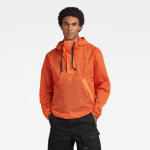We often speak of the value that fashion weeks bring to a city – their economic impact, the buzz, the cultural exchange and community engagement. However, the cost for independent brands can sometimes be overwhelmingly high, rendering these events less worthy of investment. London Fashion Week witnessed undeniable gaps this season, from the absence of Christopher Kane, who entered administration earlier this year, to S.S. Daley, Nensi Dojaka, and rising star Dilara Findikoglu canceling her show, citing insufficient funds to stage a runway presentation, as reported in The New York Times.
In an era where major brands continue to expand, staging ever more elaborate productions, emerging designers struggle to gain the attention and platform necessary to cultivate their nascent companies. London may be a hotbed for emerging talent, but it remains an exceptionally expensive city, forcing many to make tough choices between sustaining their operations and diverting resources towards unnecessary marketing expenditures. Designers should not be compelled to choose between keeping their businesses afloat and presenting
their collections at fashion week. Caroline Rush, the Chief Executive of the British Fashion Council, iterated: “I don’t think it has ever been more challenging to be an independent designer in London than it is right now.”
Nonetheless, London Fashion Week presented positive aspects this season despite these
setbacks. The event coincided with Design Week, resulting in numerous pop-ups and collaborative events throughout the city. These activities celebrated the work of visionary designers and artists who, although lacking the resources of luxury conglomerates, exhibited youthful innovation and a determination to challenge the status quo. Additionally, London hosted three fashion exhibitions, highlighting the profound impact of fashion on our lives. These exhibitions ranged from Chanel’s manifesto at the Victoria & Albert Museum to the retrospective “Rebel: 30 Years of London Fashion” at the Design Museum and “The Missing Thread: Untold Stories of Black British Fashion” at Somerset House.
Cross-over events also occurred, including Vogue World’s strange and starry multi-act celebration of British performing arts, with a red carpet akin to New York’s Met Gala, and Central Saint Martins’ Design Transforms exhibition, which celebrated the work of graduate product designers in association with UPM. Even London’s iconic Tube experienced a temporary takeover by Burberry, renaming Bond Street to Burberry Street and featuring the brand’s new blue logo hue, albeit to the confusion of some commuters.
From established to emerging designers, here’s a rundown of our favourite highlights
from London Fashion Week:
Burberry
For Daniel Lee’s sophomore show, there were high stakes and heightened anticipation. Mr. Lee’s mandate is to boost sales, particularly in accessories, an area where Burberry has lagged behind other luxury houses. This presentation prominently featured shoes and bags, reflecting Mr. Lee’s expertise honed during his tenure at Celine and Bottega Veneta. For Spring ’24, Mr. Lee appeared to streamline the collection, focusing on narrowing the range of silhouettes and options, particularly for the iconic trench, which appeared crisp and refined with a drop-waisted belt, embodying a lasting investment rather than a fleeting trend. Dresses and tailoring exuded sharpness and relevance, designed for urban living rather than mere red carpet fantasies. Shoes were particularly strong, with a new sandal, mule and boots introduced. With a lot less check on show Mr Lee delivered realness.
Simone Rocha
Fans of Crocs will delight in Simone Rocha’s pearl and lace-encrusted version, arguably the most romantic and elegant pair of Crocs ever seen. Titled “Dress Rehearsal” and held at the Mulryan Centre for Dance, where the English National Ballet rehearses, Rocha emphasized the real-world relevance of her beautifully embroidered gowns. Paired with a silver leather biker jacket, they exuded wearability without becoming overly precious. Rocha’s mastery of fabrics, both for aesthetics and their ability to be manipulated to create drapes, cuts, or folds, was evident, particularly in the pink and red dresses with gatherings at the neck and sleeve – a signature technique that may reappear in the upcoming couture collaboration with Jean Paul Gaultier.
JW Anderson
JW Anderson’s collections are known for their colourful twists and idiosyncrasies, but beneath the layers and concepts lie real, wearable garments. SS24 featured a reimagined hoodie as a backdrop, transformed by Mr. Anderson’s artistry into new molded proportions. The cargo pant shared the limelight, an everyday wardrobe staple that has kept sportswear at the for
efront of fashion for many seasons. Worn with a biker jacket or double-breasted blazer, it brought a fresh attitude without feeling contrived.
Chet Lo
Chet Lo drew inspiration from seductive prints found in ancient Chinese erotic art and Shunga. Growing up as a Chinese-American, Mr. Lo experienced sexuality as a taboo. China remains one of a handful of G20 countries that has not legalized same-sex marriage. He believes that clothing can liberate us, a philosophy evident in his collection. Whether through tailored trousers with hip slits or halter neck knit dresses adorned with a monogrammed scissoring print, Mr. Lo aspires to empower everyone to feel their most aligned, empowered, and confident selves.
Emilia Wickstead
Emilia Wickstead’s collection exuded a Saint Tropez and French Riviera vibe, harking back to the 20s and 30s when the region was a haven for artists and a playground for luminaries such as Picasso and Lee Miller. Sumptuous multilayered stripes in burnt orange, sky blue, and sunflower yellow adorned several silhouettes, from an off-the-shoulder diaphanous gown to a simple coat and two-piece that opened the show. Bold and flirtatious were Ms. Wickstead’s hallmarks, but what she truly conveyed was freedom, mirroring the way artists themselves dress and express themselves through fashion.
Ukrainian Designers in London
Ukrainian fashion brands Kseniaschnaider, Elenareva, and Nadya Dzyak unveiled their Spring Summer 2024 collections at London Fashion Week, as part of Ukrainian Fashion Week (UFW), which was held outside Kyiv due to ongoing conflicts. Despite air raid sirens and missile attacks, Ukrainian designers continued to create, and UFW provided unwavering support through its third international season.
Kseniaschnaider’s collection featured AI-generated denim silhouettes resulting from experiments and playfulness. Designer Olena Reva of Elenareva explored the theme of female power, turning to the ancient Trypillian culture and featuring prints inspired by ornaments on Trypillian clay jugs. Nadya Dzyak drew inspiration from the work of the naive artist Polina Raiko, whose museum house in Oleshky was flooded following the Russian destruction of the Kakhovka Dam. Ms. Dzyak aimed to transfer Raiko’s paintings onto their dresses, conveying a mood that cherishes artistic heritage, even if it has been washed away by water.



